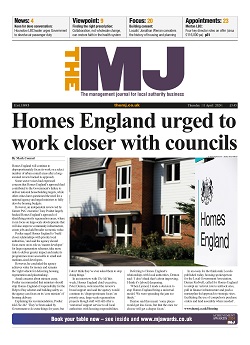The cost-of-living crisis is a mounting concern for many employees in local government. As always, the lowest paid are facing the worst financial hardship, with inflation at its highest rate for three decades, and more pressures on the household budget to come.
Cleaners, teaching assistants and care workers are among staff hit most by the reduced purchasing power of their wage packet. Then in April, there’s the financial double whammy of a planned increase in national insurance (NI) contributions, and the removal of the fuel price cap amid skyrocketing energy prices.
More and more staff are contacting Unison to say they’re having to choose between heating their homes and buying food for their families.
No one in a wealthy country like the UK should have to make that stark decision, least of all local government staff who have kept communities together during the pandemic.
These are the workers who have given their utmost for months – and continue to do so.
The refuse collectors who have kept bins emptied; the support staff in schools who have ensured children continue to learn; the catering employees who kept pupils fed while their key worker parents were on the frontline; the care workers who have been there to ensure our relatives and friends have been looked after properly; and the council staff who paused their regular work to deliver food parcels to vulnerable people who were isolating.
They’re just some who have ensured vital services continued to run while the threat from Covid brought much of the country to a standstill.
Yet no one was clapping for these frontline workers during the darkest of times. No one stood on their doorsteps and banged a pan as a thank you for all they were doing. Few recognise their value – including the government, which is why poverty pay is endemic.
Women make up much of the local government workforce and are more likely to do lower-paid jobs such as catering, teaching assistant or care roles.
A higher-than-average proportion of Black workers are low-waged too.
These groups most affected by the cost-of-living crisis need support right now and for the foreseeable future from employers and the government.
Managers could take note of the approach taken by Unison, which this month launched a winter fuel fund. The money will help members on low incomes by providing grants of up to £200 to ease the worry of paying for the next bill.
The scheme is being run through the union’s There for You service, which provides a confidential advice and support for members experiencing financial and emotional difficulties.
Last year, the welfare charity provided grants totalling more than £980,000 including over £40,000 to cover utility and fuel bills.
These grants may offer a lifeline to those in hardship but wouldn’t even be needed if wages were decent.
Local authorities must understand that investing in services is only possible through investing in public service workers.
There is a direct link between how much staff are paid and the quality of our parks, schools, care homes and other vital services provided to communities.
When private sector employers such as supermarkets are offering higher hourly wages than those in local government then it is hardly surprising that staff are leaving in droves.
Some authorities are paying a recruitment and retention premium to keep staff such as refuse vehicle drivers.
If they paid them enough in the first place, then such incentives wouldn’t be needed.
Following a decade of restraint, the value of local government pay has fallen by 25% in real terms and this woeful situation is partly to blame for the current recruitment and retention crisis.
Those at the bottom of the wage scale earn less than the real living wage of £9.90 an hour (£11.05 in London) which is the minimum amount Unison and the Living Wage Foundation believe is necessary for people to have a decent standard of living.
And that still puts experiences that others take for granted – such as family holidays – out of reach.
Councils are struggling financially and money for a decent inflation-busting wage increase must come from central government. What UNISON needs is for employers to work with us on securing higher pay, as a key part of their drive to maintain and improve in services.
Don’t forget, the people who supported our communities through the toughest days of the pandemic need support too.
Mike Short is head of local government at Unison

